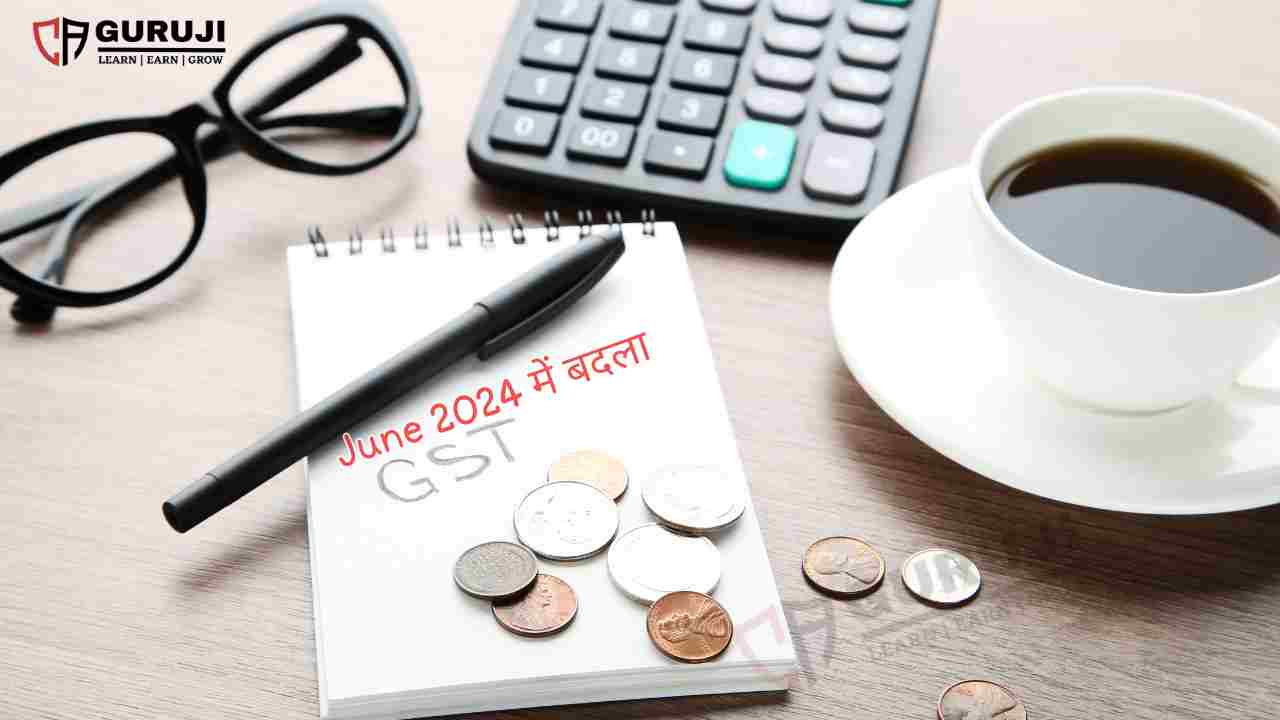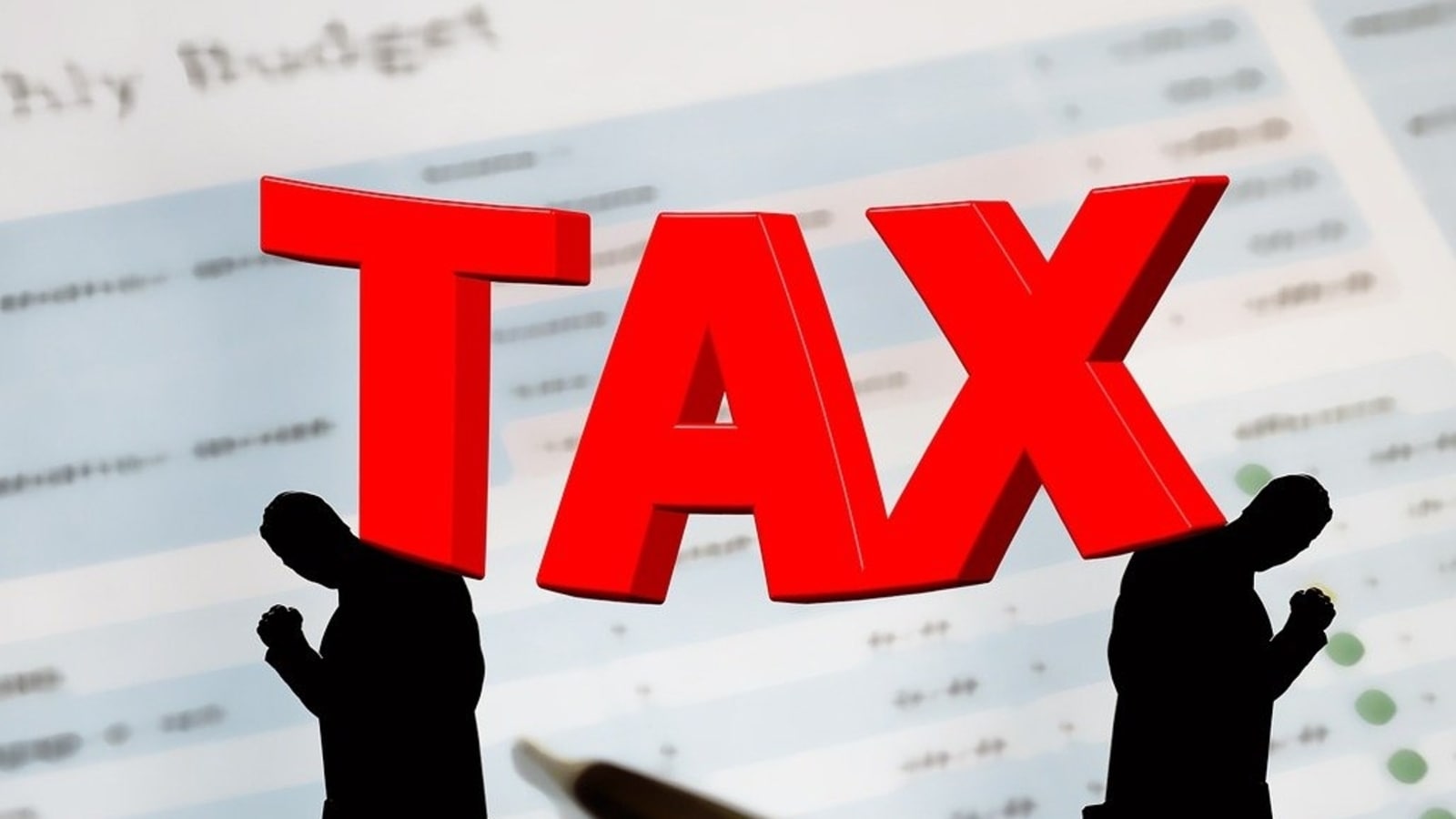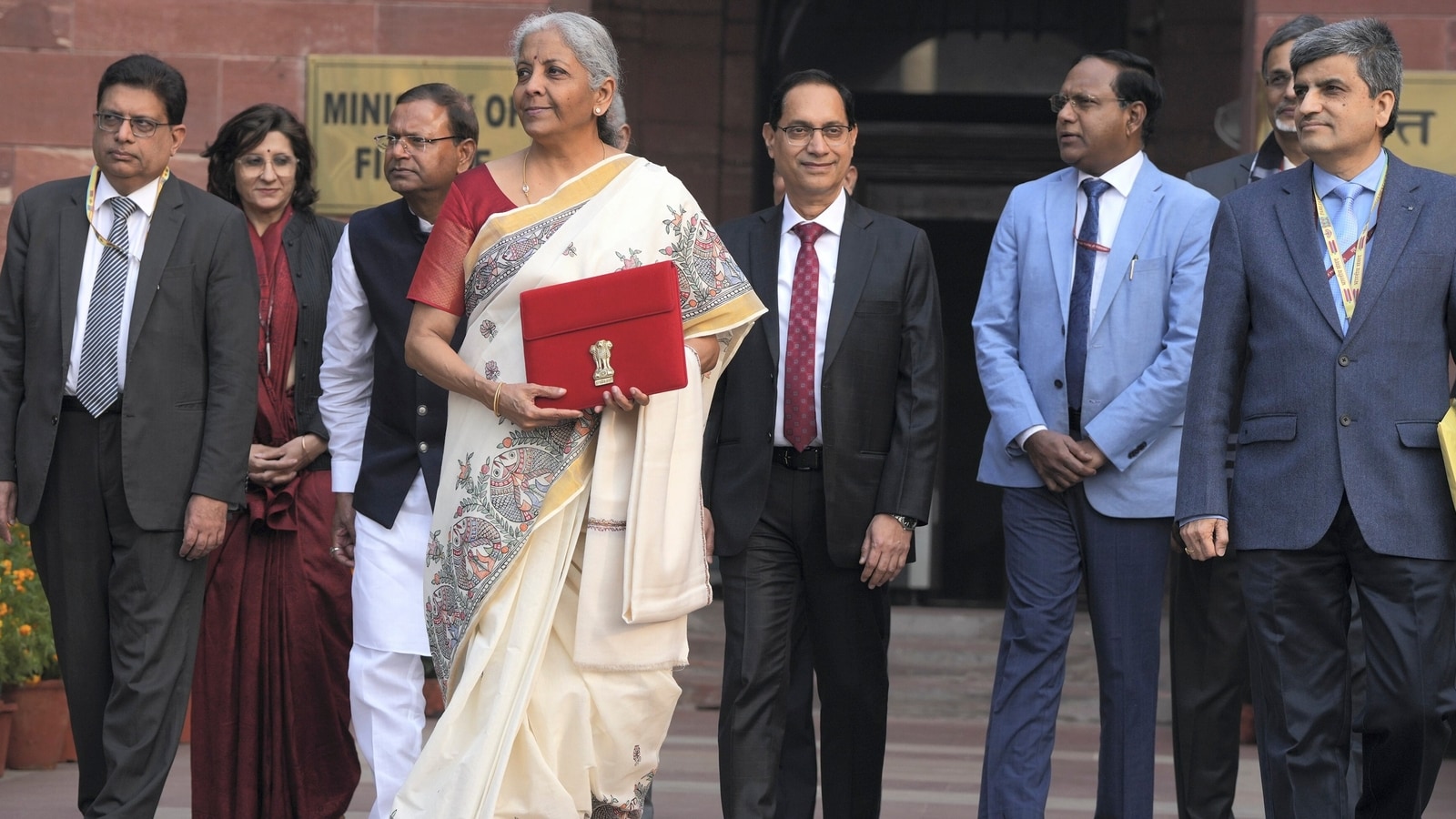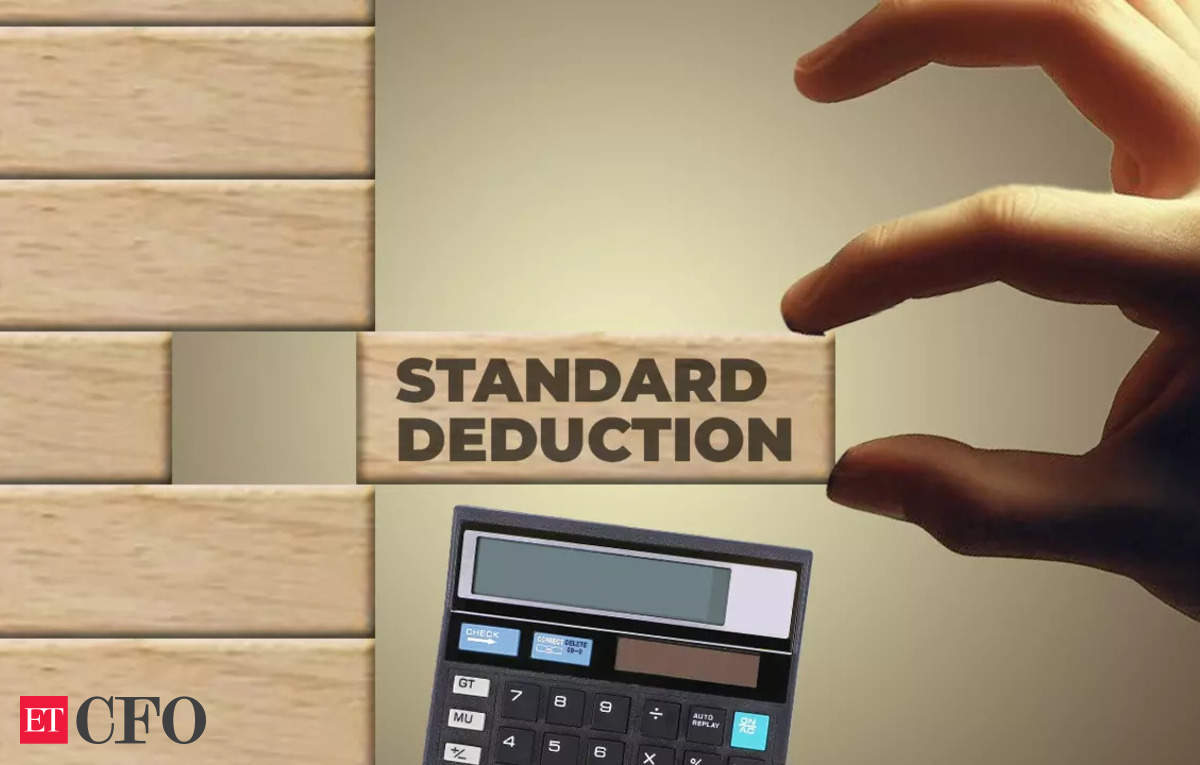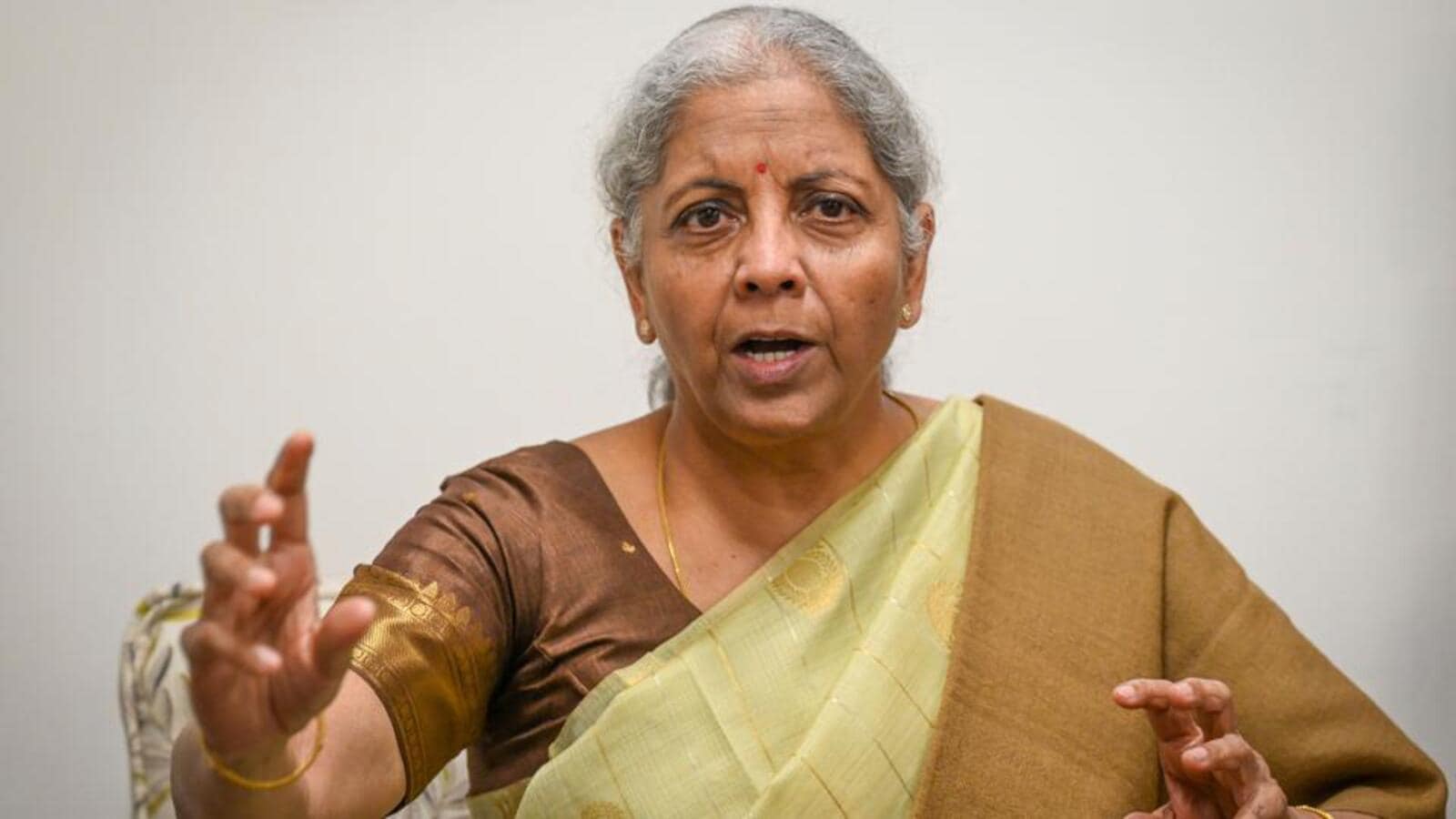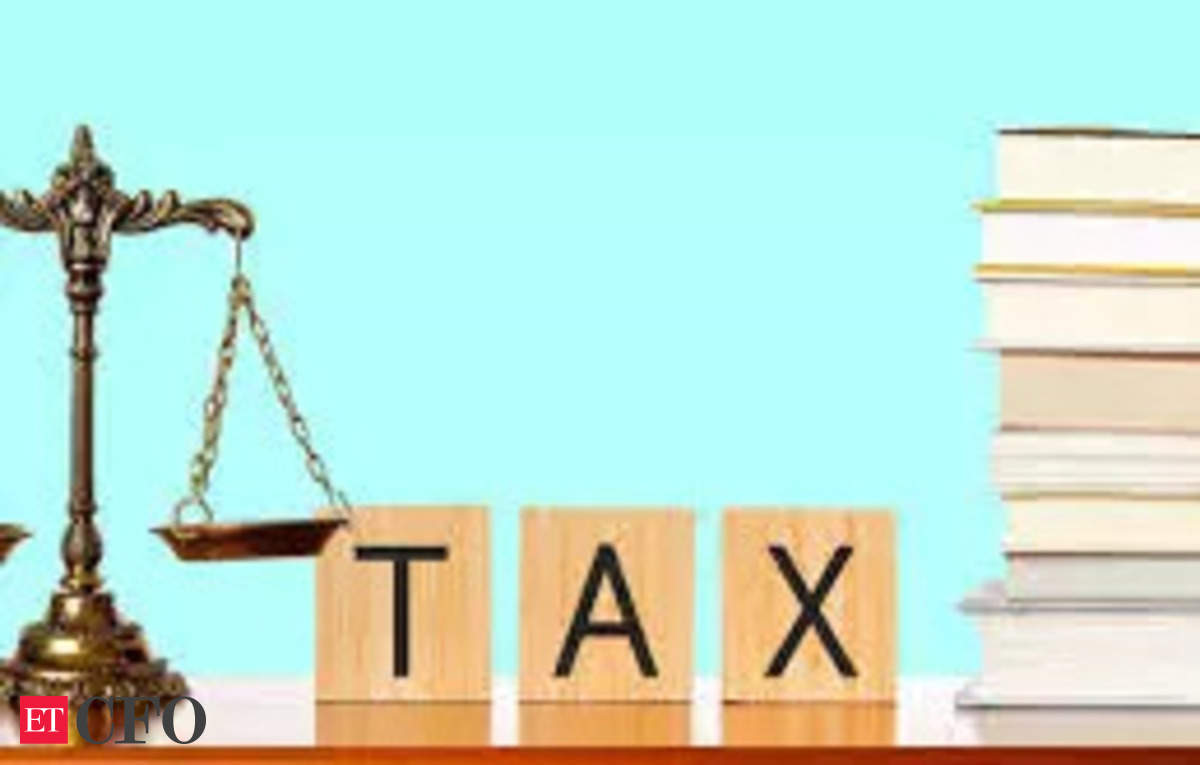The GST amendments discussed here deliberated upon during the 53rd GST Council meeting concluded on 22nd June 2023. This meeting marked a significant event as it followed a hiatus of 9 months since the previous 52nd meeting. Notably, it was the first GST Council meeting of the year 2024, held post-general elections, and witnessed substantial revisions in GST policies and rates across various sectors. The decisions taken during this session aimed to streamline tax structures, address industry-specific challenges, and enhance compliance measures under the GST regime.
Get Press Release of 53rd GST council meeting
1. Insertion of Section 128A in CGST Act, to provide for conditional waiver of interest or penalty or both, relating to demands raised under Section 73, for FY 2017-18 to FY 2019-20:
Considering the difficulties faced by the taxpayers during the initial years of implementation of GST, the GST Council recommended waiving interest and penalties for demand notices issued under Section 73 of the CGST Act for the fiscal years 2017-18, 2018-19, and 2019-20. This waiver is applicable in cases where the taxpayer pays the full amount of tax demanded in the notice by 31.03.2025. The waiver does not cover demands related to erroneous refunds. To implement this, the GST Council has recommended the insertion of Section 128A in the CGST Act, 2017.
Easy Interpretation
Waiver of Interest and Penalty for Tax Demands under CGST Act
- Applicability: This waiver applies to demands raised under Section 73 for the fiscal years 2017-18, 2018-19, and 2019-20.
- Benefit: Taxpayers can get a waiver of interest and penalties.
- Condition: The full tax amount must be paid by 31.03.2025.
- Exclusions: The waiver does not apply to:
- Notices issued under Section 74.
- Refund-related demands, whether under Section 73 or Section 74.
2. Reduction of Government Litigation by Fixing Monetary Limits for Filing Appeals under GST:
The Council recommended prescribing monetary limits, subject to certain exclusions, for the filing of appeals in GST by the department before the GST Appellate Tribunal, High Court, and Supreme Court, to reduce government litigation. The following monetary limits have been recommended by the Council:
- GST Appellate Tribunal: Rs. 20 lakhs
- High Court: Rs. 1 crore
- Supreme Court: Rs. 2 crores
Easy Interpretation
Monetary Limits for Filing Appeals by the Department
- GST Appellate Tribunal: Appeals can be filed if the amount involved is Rs. 20 lakhs or more.
- High Court: Appeals can be filed if the amount involved is Rs. 1 crore or more.
- Supreme Court: Appeals can be filed if the amount involved is Rs. 2 crores or more.
These limits aim to reduce the number of government-initiated litigations.
3. Amendment in Section 107 and Section 112 of CGST Act for reducing the amount of pre-deposit required to be paid for filing of appeals under GST:
The GST Council recommended reducing the amount of pre-deposit for filing of appeals under GST to ease cash flow and working capital blockage for taxpayers. The maximum amount for filing an appeal with the appellate authority has been reduced from Rs. 25 crores CGST and Rs. 25 crores SGST to Rs. 20 crores CGST and Rs. 20 crores SGST. Further, the amount of pre-deposit for filing an appeal with the Appellate Tribunal has been reduced from 20% with a maximum amount of Rs. 50 crores CGST and Rs. 50 crores SGST to 10% with a maximum of Rs. 20 crores CGST and Rs. 20 crores SGST.
Easy Interpretation
Reduced Pre-deposit for Filing Appeals under GST
| Appeal Stage | Existing Pre-deposit | Proposed Pre-deposit |
|---|---|---|
| Commissioner (Appeals) u/s 107 | 10% of GST demand [Max. Rs. 50 crores (CGST + SGST/IGST)] | 10% of GST demand [Max. Rs. 40 crores (CGST + SGST/IGST)] |
| GST Tribunal u/s 112 | Additional 20% of GST demand [Max. Rs. 100 crores (CGST + SGST/IGST)] | Additional 10% of GST demand [Max. Rs. 40 crores (CGST + SGST/IGST)] |
These amendments aim to reduce cash flow and working capital blockages for taxpayers by lowering the pre-deposit amounts required for filing appeals.
4. Applicability of Goods and Services Tax on Extra Neutral Alcohol (ENA):
The GST Council, in its 52nd meeting, recommended amending the GST Law to explicitly exclude rectified spirit/Extra Neutral Alcohol (ENA) from the scope of GST when supplied for manufacturing alcoholic liquors for human consumption. The GST Council now recommended amending sub-section (1) of Section 9 of the CGST Act, 2017 to not levy GST on Extra Neutral Alcohol used for the manufacture of alcoholic liquor for human consumption.
Easy Interpretation
GST Exemption for Extra Neutral Alcohol (ENA)
- Reason: Alcoholic liquor for human consumption is not subject to GST.
- Impact: Rectified Spirit/Extra Neutral Alcohol (ENA) will not be subject to GST when used to manufacture alcoholic liquors for human consumption.
- Action: Amendment to sub-section (1) of Section 9 of the CGST Act, 2017 to explicitly exclude ENA from GST in this context.
5. Reduction in Rate of TCS to be Collected by the ECOs for Supplies Being Made Through Them:
Electronic Commerce Operators (ECOs) are required to collect Tax Collected at Source (TCS) on net taxable supplies under Section 52(1) of the CGST Act. The GST Council has recommended reducing the TCS rate from the present 1% (0.5% CGST + 0.5% SGST/UTGST, or 1% IGST) to 0.5% (0.25% CGST + 0.25% SGST/UTGST, or 0.5% IGST), to ease the financial burden on the suppliers making supplies through such ECOs.
Easy Interpretation
Reduction in TCS Rate for E-commerce Sellers
- Purpose: To ease the financial burden on e-commerce sellers.
- New TCS Rate: Reduced from 1% to 0.5%.
- Breakdown of New Rate:
- CGST + SGST/UTGST: 0.25% each
- IGST: 0.5%
This change helps reduce the financial impact on suppliers using e-commerce platforms.
6. Time for Filing Appeals in GST Appellate Tribunal:
The GST Council recommended amending Section 112 of the CGST Act, 2017 to allow the three-month period for filing appeals before the Appellate Tribunal to start from a date to be notified by the Government in respect of appeal/revision orders passed before the date of said notification. This will give sufficient time to the taxpayers to file appeals before the Appellate Tribunal in the pending cases. Notably, the President of the GST Appellate Tribunal (GSTAT) was appointed on 6th May 2024, and it will soon become operational.
Easy Interpretation
Extension for Filing Appeals in GST Appellate Tribunal
- Reason: The GST Appellate Tribunal (GSTAT) is still to be formed.
- Recommendation: Amend the CGST Act to provide that the three-month period for filing appeals in the GST Appellate Tribunal will start from a date to be notified by the Government.
- Impact: This gives taxpayers enough time to file appeals for pending cases once the Tribunal is established.
- Update: The President of GSTAT was appointed on 6th May 2024, and it will soon be operational.
7. Relaxation in Condition of Section 16(4) of the CGST Act:
a) In respect of initial years of implementation of GST, i.e., financial years 2017-18, 2018-19, 2019-20, and 2020-21: The GST Council recommended that the time limit to avail input tax credit (ITC) in respect of any invoice or debit note under Section 16(4) of the CGST Act, through any return in FORM GSTR 3B filed up to 30.11.2021 for the financial years 2017-18, 2018-19, 2019-20, and 2020-21, may be deemed to be 30.11.2021. For the same, requisite amendment in Section 16(4) of the CGST Act, retrospectively, w.e.f. 01.07.2017, has been recommended by the Council.
b) With respect to cases where returns have been filed after revocation: The GST Council recommended retrospective amendment in Section 16(4) of the CGST Act, to be made effective from July 1, 2017, to conditionally relax the provisions of Section 16(4) of the CGST Act in cases where returns for the period from the date of cancellation of registration/effective date of cancellation of registration till the date of revocation of cancellation of the registration are filed by the registered person within thirty days of the order of revocation.
c) The GST Council has recommended clarifying the applicability of Section 16(4) of the CGST Act, 2017, specifically regarding invoices issued by the recipient under the Reverse Charge Mechanism (RCM). In cases where supplies are received from unregistered suppliers and tax is payable by the recipient under RCM, the relevant financial year for calculating the time limit to avail input tax credit (ITC) is the financial year in which the recipient issues the invoice.
Easy Interpretation
Extension for Availing ITC under Section 16(4)
- Extended Time Limit for FYs 2017-18 to 2020-21: The deadline to avail ITC for any tax invoice under Section 16(4) for FYs 2017-18, 2018-19, 2019-20, and 2020-21 is extended to 30th November 2021. This provision shall be applicable retrospectively from 1st July 2017.
| Financial Year | Original Last Date to Avail ITC | Extended Date to Avail ITC |
|---|---|---|
| 2017-18 | 23-04-2019 | 30-11-2021 |
| 2018-19 | 20-10-2019 | 30-11-2021 |
| 2019-20 | 24-10-2020 | 30-11-2021 |
| 2020-21 | 24-10-2021 | 30-11-2021 |
Extension for Revoked Registrations:
The GST Council recommended a retrospective amendment effective from 1st July 2017 to allow conditional relaxation in cases where returns for the period from the date of cancellation of registration till the date of revocation of cancellation of the registration are filed by the registered person within thirty days of the order of revocation.
| Example | Date |
|---|---|
| Registration Cancelled by Department | 01-06-2024 |
| Revocation Order Received for Cancellation | 31-12-2024 |
| Original Last Date to Avail ITC u/s 16(4) for FY 2023-24 | 30-11-2024 |
| Extended Last Date to Avail ITC u/s 16(4) for FY 2023-24 | 30-01-2025 |
Note: For businesses that had their GST registration cancelled, they can claim ITC up to 30th January 2025, provided the returns for that period are filed within 30 days from the order of revocation, i.e., by 30th January 2025.
8. Change in Due Date for Filing of Return in FORM GSTR-4 for Composition Taxpayers from 30 April to 30 June:
The GST Council recommended an amendment in clause (ii) of sub-rule (1) of Rule 62 of CGST Rules, 2017, and FORM GSTR-4 to extend the due date for filing of return in FORM GSTR-4 for composition taxpayers from 30th April to 30th June following the end of the financial year. This will apply for returns for the financial year 2024-25 onwards. The change aims to provide more time to taxpayers who opt to pay tax under the composition levy to furnish the said return.
Easy Interpretation
Extended Due Date for Composition Taxpayers’ GSTR-4
- Previous Due Date: 30th April following the end of the financial year.
- New Due Date: 30th June following the end of the financial year.
- Applicable From: Financial year 2024-25 onwards.
Impact: This extension gives more time to taxpayers who opt for the composition levy to file their GSTR-4 returns.
9. Amendment of Rule 88B of CGST Rules, 2017 in Respect of Interest Under Section 50 of CGST Act on Delayed Filing of Returns:
The GST Council recommended amending Rule 88B of the CGST Rules to provide that an amount, which is available in the Electronic Cash Ledger (ECL) on the due date of filing of return in FORM GSTR-3B, and is debited while filing the said return, shall not be included while calculating interest under Section 50 of the CGST Act in respect of delayed filing of the said return.
Easy Interpretation
Relief from Interest on Delayed Return Filing
- Purpose: To ease the interest burden on taxpayers.
- Recommendation: Amendment in Rule 88B to not levy interest under Section 50 of the CGST Act in case of delayed filing of return, on the amount which is available in the Electronic Cash Ledger (ECL) on the due date of filing the said return.
Example:
Ram to file GSTR 3B of August 2024 till 20 Sept 2024 but he filed it on 1 October 2024
| Particulars | Case 1 | Case 2 |
|---|---|---|
| Balance in Electronic Cash Ledger on due date | Rs. 50 Crore | Rs. 40 Crore |
| GST Liability for August 2024 payable in Cash | Rs. 80 Crore | Rs. 35 Crore |
| Interest to be calculated on | Rs. 30 Crore (Rs. 80 Crore – Rs. 50 Crore) | N.A. |
| Delay in filing (in days) | 11 Days | 11 Days |
| Interest @ 18% | Rs. 16.27 Lacs (30 Crore * 18% * 11/365) | N.A. |
Summary: If the balance in the Electronic Cash Ledger is sufficient to cover the GST liability on the due date, no interest will be charged on the amount available in the ECL, even if the return is filed late.
10. Insertion of Section 11A in CGST Act for Granting Power not to Recover Duties Not Levied or Short-Levied as a Result of General Practice under GST Acts
The GST Council recommended inserting a new Section 11A in CGST Act to give powers to the Government, on the recommendations of the Council, to allow regularization of non-levy or short levy of GST, where tax was being short paid or not paid due to common trade practices
Easy Interpretation
This new provision gives the Government the authority, endorsed by the GST Council, to waive the recovery of GST that businesses have either underpaid or not paid at all because they followed common industry practices. In simpler terms, if businesses did not pay sufficient GST or did not pay GST due to prevalent practices in their industry, the Government can officially decide not to recover these unpaid taxes. This ensures that businesses will not face penalties for non-payment of GST in situations where such non-payment aligns with recognized industry norms, provided it is approved by the GST Council.
11. Refund of Additional Integrated Tax (IGST) Due to Price Revision Post-Export
The GST Council recommended to prescribe a mechanism for claiming refund of additional IGST paid on account of upward revision in price of the goods subsequent to their export. This will facilitate a large number of taxpayers, who are required to pay additional IGST on account of upward revision in price of the goods subsequent to export, in claiming refund of such additional IGST.
Easy Interpretation
This recommendation allows exporters to claim a refund for any additional IGST paid because the price of goods was increased after they were exported.
12. Clarification on Valuation of Import of Services by a Related Person with Full Input Tax Credit Eligibility
The Council recommended to clarify that in cases where the foreign affiliate is providing certain services to the related domestic entity, for which full input tax credit is available to the said related domestic entity, the value of such supply of services declared in the invoice by the said related domestic entity may be deemed as open market value in terms of second proviso to rule 28(1) of CGST Rules. Further, in cases where full input tax credit is available to the recipient, if the invoice is not issued by the related domestic entity with respect to any service provided by the foreign affiliate to it, the value of such services may be deemed to be declared as Nil, and may be deemed as open market value in terms of second proviso to rule 28(1) of CGST Rules.
Easy Interpretation
| Scenario | Service Provider (Outside India) | Service Recipient (In India) | ITC Available | Invoice Issued | GST Valuation |
|---|---|---|---|---|---|
| 1 | Yes | Yes | Yes | Yes | Value declared shall be considered as open market value (proviso to Rule 28(1)) |
| 2 | Yes | Yes | Yes | No | Nil value shall be considered as open market value (proviso to Rule 28(1)) |
| 3 | Yes | Yes | No | Yes or No | Value shall be calculated considering Rule 28(1) (open market value) |
13. Clarification regarding availability of Input Tax Credit (ITC) on ducts and manholes used in the network of Optical Fiber Cables (OFCs):
The Council recommended to clarify that input tax credit is not restricted in respect of ducts and manhole used in network of optical fiber cables (OFCs), under clause (c) or under clause (d) of sub-section (5) of section 17 of CGST Act.
Easy Interpretation
This clarification means that businesses can claim input tax credit (ITC) on the GST paid for ducts and manholes used in the construction of optical fiber cable networks without any restrictions. Previously, there was ambiguity regarding the eligibility of ITC for these infrastructure components, but now it is clear that such credits are fully allowable under the GST laws.
14. Clarification on Place of Supply for Custodial Services Provided by Banks
The GST Council has recommended clarifying that the determination of the place of supply for custodial services provided by Indian banks to Foreign Portfolio Investors (FPIs) should follow Section 13(2) of the IGST Act, 2017.
Easy Interpretation
This clarification specifies that for custodial services offered by Indian banks to Foreign Portfolio Investors (FPIs), the place of supply will be determined according to Section 13(2) of the IGST Act, 2017. This provision outlines the rules for identifying the location where services are considered to be provided under the Integrated Goods and Services Tax (IGST) framework.
15. Clarification on Valuation of Corporate Guarantees between Related Persons
The GST Council has recommended clarifying the valuation rules for corporate guarantees provided between related parties, following the retrospective amendment of Rule 28(2) of the CGST Rules, 2017, effective from 26th October 2023. Additionally, a circular will be issued to address various aspects related to this matter.
Easy Interpretation
The recent clarifications ensure that the valuation under Rule 28(2) of the CGST Rules will not apply in two specific scenarios:
- Export of Services: When a corporate guarantee is provided to a related Indian company for services exported to a related company outside India.
- Full Input Tax Credit (ITC) Availability: When a corporate guarantee is provided to a related company in India and the recipient is eligible for full input tax credit.
In these cases, the value of supply for GST purposes will be based on the transaction value declared by the supplier of the service, which may be zero or as per mutual agreement, considering there might be no GST payable.

16. The Council recommended amendment in section 140(7) of CGST Act retrospectively w.e.f. 01.07.2017
to provide for transitional credit in respect of invoices pertaining to services provided before appointed date, and where invoices were received by Input Service Distributor (ISD) before the appointed date.
Easy interpretation
This means that if services were provided before July 1, 2017, and the invoices for those services were received by the Input Service Distributor before July 1, 2017, the transitional credit can still be claimed under the amended law.
17. GSTR-1A
The Council recommended providing a new optional facility by way of FORM GSTR-1A to facilitate the taxpayers to amend the details in FORM GSTR-1 for a tax period and/or to declare additional details, if any, before filing of return in FORM GSTR-3B for the said tax period. This will facilitate taxpayer to add any particulars of supply of the current tax period missed out in reporting in FORM GSTR-1 of the said tax period or to amend any particulars already declared in FORM GSTR-1 of the current tax period (including those declared in IFF, for the first and second months of a quarter, if any, for quarterly taxpayers), to ensure that correct liability is auto-populated in FORM GSTR-3B.
Easy Interpretation:
GSTR-1A – A New Functionality in the Return Filing System
- GST Council has recommended introducing a new optional facility for filing FORM GSTR-1A.
- This facility allows taxpayers to amend/add details in FORM GSTR-1 filed for a specific tax period, if necessary, before filing the return in FORM GSTR-3B for that period.
- This option will enable taxpayers to add any missed supply details for the current tax period or amend those already declared in FORM GSTR-1 (including those declared in the IFF for the first and second months of a quarter for quarterly taxpayers). This ensures that the correct liability is auto-populated in FORM GSTR-3B.
18. Exemption to file GSTR-9/9A FY 2023-24
The Council recommended that filing of annual return in FORM GSTR-9/9A for the FY 2023-24 may be exempted for taxpayers having aggregate annual turnover up to two crore rupees.
19. Amendment was recommended to be made in section 122(1B) of CGST Act retrospectively w.e.f. 01.10.2023,
so as to clarify that the said penal provision is applicable only for those e-commerce operators, who are required to collect tax under section 52 of CGST Act, and not for other e-commerce operators.
Easy Interpretation:
Section 122(1B) Newly Inserted
- An amendment to section 122(1B) of the CGST Act was recommended to be made effective retrospectively from October 1, 2023.
- This amendment clarifies that the penal provision in this section applies only to those e-commerce operators who are required to collect tax under section 52 of the CGST Act.
- Other e-commerce operators who are not required to collect tax under section 52 are not subject to this penalty provision.
20. Adjustment of an amount paid in respect of a demand through FORM GST DRC-03 against the amount to be paid as pre-deposit for filing appeal.
The Council recommended amendment in rule 142 of CGST Rules and issuance of a circular to prescribe a mechanism for adjustment of an amount paid in respect of a demand through FORM GST DRC-03 against the amount to be paid as pre-deposit for filing appeal.
Easy Interpretation:
Amendment to Rule 142 and Adjustment Mechanism
- The Council recommended amending rule 142 of the CGST Rules.
- A circular will be issued to establish a mechanism for adjusting amounts paid via FORM GST DRC-03.
- This adjustment will allow the amount paid for a demand to be used as a pre-deposit when filing an appeal.
21. Bio metric based Aadhaar Authentication
The GST Council recommended to roll-out the biometric-based Aadhaar authentication of registration applicants on pan-India basis in a phased manner. This will strengthen the registration process in GST and will help in combating fraudulent input tax credit (ITC) claims made through fake invoices.
Easy Interpretation:
Rolling Out of Biometric-Based Aadhaar Authentication on All-India Basis
- Biometric-based Aadhaar authentication has already been applied in states like Gujarat, Andhra Pradesh and Puducherry.
- Now, it will be rolled out across all of India in a phased manner.
- This measure aims to curb fake GST registrations and fraudulent input tax credit (ITC) claims.
22. New section 74A & Extension time limit
Amendments in Section 73 and Section 74 of CGST Act, 2017 and insertion of a new Section 74A in CGST Act, to provide for common time limit for issuance of demand notices and orders irrespective of whether case involves fraud, suppression, willful misstatement etc., or not: Presently, there is a different time limit for issuing demand notices and demand orders, in cases where charges of fraud, suppression, willful misstatement etc., are not involved, and in cases where those charges are involved. In order to simplify the implementation of those provisions, the GST Council recommended to provide for a common time limit for issuance of demand notices and orders in respect of demands for FY 2024-25 onwards, in cases involving charges of fraud or willful misstatement and not involving the charges of fraud or willful misstatement etc. Also, the time limit for the taxpayers to avail the benefit of reduced penalty, by paying the tax demanded along with interest, has been recommended to be increased from 30 days to 60 days.
Easy Interpretation:
Amendments to Section 73 and Section 74 of CGST Act
- The GST Council recommended amendments to Section 73 and Section 74 of the CGST Act, 2017.
- A new Section 74A will be inserted to establish a common time limit for issuing demand notices and orders, regardless of whether the case involves charges like fraud, suppression, or willful misstatement.
- Currently, different time limits exist based on the presence of such charges, creating complexity.
- Starting from the financial year 2024-25 onwards, this amendment aims to simplify the process.
- Additionally, the time limit for taxpayers to benefit from reduced penalties, by paying the tax demanded along with interest, will be extended from 30 days to 60 days.
23. Sunset clause
The Council recommended amendment in section 171 and section 109 of CGST Act, 2017 to provide a sunset clause for anti-profiteering under GST and to provide for handling of anti-profiteering cases by Principal bench of GST Appellate Tribunal (GSTAT). Council has also recommended the sun-set date of 01.04.2025 for receipt of any new application regarding anti-profiteering.
Easy Interpretation:
Amendments to Section 171 and Section 109 of CGST Act
- The GST Council recommended amendments to Section 171 and Section 109 of the CGST Act, 2017.
- These amendments introduce a sunset clause for anti-profiteering measures under GST.
- Anti-profiteering cases will now be handled by the Principal bench of GST Appellate Tribunal (GSTAT).
- Additionally, the Council proposed a sunset date of April 1, 2025, after which no new applications regarding anti-profiteering will be accepted.
This move aims to streamline and limit the application of anti-profiteering provisions under GST while ensuring cases are handled efficiently through a designated tribunal.
24. Amendment in Section 16 of IGST Act and section 54 of CGST Act to curtail refund of IGST in cases where export duty is payable:
The Council recommended amendments in section 16 of IGST Act and section 54 of CGST Act to provide that the refund in respect of goods, which are subjected to export duty, is restricted, irrespective of whether the said goods are exported without payment of taxes or with payment of taxes, and such restrictions should also be applicable, if such goods are supplied to a SEZ developer or a SEZ unit for authorized operations.
Easy Interpretation:
Amendment to Section 16 of IGST Act and Section 54 of CGST Act
- The GST Council recommended amendments to Section 16 of the IGST Act and Section 54 of the CGST Act.
- These amendments aim to restrict the refund of Integrated Goods and Services Tax (IGST) in cases where export duty is payable on the goods.
- This restriction applies regardless of whether the goods are exported without payment of taxes (under LUT or bond) or with payment of taxes.
- The same restriction will also be applicable if such goods are supplied to a Special Economic Zone (SEZ) developer or a SEZ unit for authorized operations.
This amendment seeks to ensure that IGST refunds are curtailed for goods that attract export duty, aligning with the government’s policy to prevent potential revenue leakage and misuse of export benefits
25. Change in GSTR-1
The threshold for reporting of B2C inter-State supplies invoice-wise in Table 5 of FORM GSTR-1 was recommended to be reduced from Rs 2.5 Lakh to Rs 1 Lakh.
Easy Interpretation:
Reduction in Threshold for Reporting B2C Inter-State Supplies
- The GST Council recommended lowering the threshold for reporting B2C (Business to Consumer) inter-State supplies invoice-wise in Table 5 of FORM GSTR-1.
- Previously, businesses were required to report invoices for B2C inter-State supplies if the value exceeded Rs 2.5 lakh.
- Now, this threshold has been reduced to Rs 1 lakh.
This change aims to enhance tax administration and compliance by capturing more detailed data on B2C transactions, particularly those across state borders, helping to monitor tax evasion and ensure transparency in GST reporting.
26. change in GSTR -7
The Council recommended that return in FORM GSTR-7, to be filed by the registered persons who are required to deduct tax at source under section 51 of CGST Act, is to be filed every month irrespective of whether any tax has been deducted during the said month or not. It has also been recommended that no late fee may be payable for delayed filing of Nil FORM GSTR-7 return. Further, it has been recommended that invoice-wise details may be required to be furnished in the said FORM GSTR-7 return.
Easy Interpretation:
Amendments to FORM GSTR-7 Filing Requirements
- Registered persons required to deduct tax at source under section 51 of the CGST Act will now be required to file a monthly return in FORM GSTR-7.
- This filing requirement applies every month, regardless of whether any tax was deducted during that month.
- If there is no tax deducted (Nil return), no late fee will be charged for delayed filing.
- Additionally, the recommended changes may require these taxpayers to furnish invoice-wise details in the FORM GSTR-7 return.
These amendments aim to streamline the process of tax deduction at source (TDS) under GST by ensuring regular and detailed reporting, while also reducing compliance burden for taxpayers filing Nil returns.
27. Clarification on following issues to provide clarity to trade and tax officers and to reduce litigation
Here is the comprehensive table with all the matters on which clarifications are proposed:
| S.No. | Clarification |
|---|---|
| 1 | Clarification on taxability of re-imbursement of securities/shares as ESOP/ESPP/RSU provided by a company to its employees |
| 2 | Clarification on requirement of reversal of input tax credit in respect of amount of premium in Life Insurance services, which is not included in the taxable value as per Rule 32(4) of CGST Rules. |
| 3 | Clarification on taxability of wreck and salvage values in motor insurance claims |
| 4 | Clarification in respect of Warranty/Extended Warranty provided by Manufacturers to the end customers |
| 5 | Clarification regarding availability of input tax credit on repair expenses incurred by the insurance companies in case of reimbursement mode of settlement of motor vehicle insurance claims. |
| 6 | Clarification on taxability of loans granted between related person or between group companies |
| 7 | Clarification on time of supply on Annuity Payments under HAM Projects |
| 8 | Clarification regarding time of supply in respect of allotment of Spectrum to Telecom companies in cases where payment of license fee and Spectrum usage charges is to be made in instalments. |
| 9 | Clarification relating to place of supply of goods supplied to unregistered persons, where delivery address is different from the billing address |
| 10 | Clarification on mechanism for providing evidence by the suppliers for compliance of the conditions of Section 15(3)(b)(ii) of CGST Act, 2017 in respect of post-sale discounts, to the effect that input tax credit has been reversed by the recipient on the said amount. |
| 11 | Clarifications on various issues pertaining to special procedure for the manufacturers of the specified commodities, like pan masala, tobacco etc. |
| 12 | Council recommended to clarify that place of supply of Custodial services supplied by Indian Banks to Foreign Portfolio Investors is determinable as per Section 13(2) of the IGST Act, 2017. |
28. Changes in Rate of Services:
1: GST Applicability of Hostel / PG Services
To create a separate entry in notification No. 12/2017- CTR 28.06.2017 under heading 9963 to exempt accommodation services having value of supply of accommodation up to Rs. 20,000/- per month per person subject to the condition hat the accommodation service is supplied for a minimum continuous period of 90 days. To extend similar benefit for past cases
2: GST Exemptions in Other Industries
| Industry Category | Description | Taxability |
|---|---|---|
| Railway Industry | General Public Services | Exempt |
| Railway Industry | Intra-Railway transactions | Exempt |
| Railway Industry | Services by SPVs to Indian Railways | Exempt |
| Banking Industry | Sharing of incentives | Not Taxable under Schedule – III |
| Real Estate Industry | Statutory collections by Real Estate Regulatory Authority (RERA) | Exempt |
3: GST Exemptions for Specific Insurance Services
| Category | Description | Classification/Notification | Effective Dates |
|---|---|---|---|
| Co-insurance premiums | Premiums apportioned between lead insurers and co-insurers in coinsurance agreements | ‘No Supply’ under Schedule III of the CGST Act, 2017 | – |
| Ceding commission/re-insurance commission | Transactions involving commission between insurers and reinsurers | ‘No Supply’ under Schedule III of the CGST Act, 2017 | – |
| Reinsurance services for specified insurance schemes | Services regularized | Sr. Nos. 35 & 36, Notification No. 12/2017 | 01.07.2017 to 24.01.2018 |
| Reinsurance services for government-paid premium schemes | Services regularized | Sr. No. 40, Notification No. 12/2017 | 01.07.2017 to 26.07.2018 |
| Retrocession (re-insurance of re-insurance) | Eligible for exemption | Sr. No. 36A, Notification No. 12/2017 | – |
29. Changes in Rate of GOODS:
1: Changes in Rate of Goods
| Sr. | Description of Goods | Existing Rate | Proposed Rate |
|---|---|---|---|
| 1 | Imports of Parts, components, testing equipment, tools and tool-kits of aircrafts (irrespective of their HSN classification) to provide a fillip to MRO activities subject to specified conditions. | Any Rate | 5% |
| 2 | All milk cans (of steel, iron and aluminium) irrespective of their use | 18% | 12% |
| 3 | Carton, boxes and cases of both corrugated and non-corrugated paper or paperboard (HSN 4819 10; 4819 20) | 18% | 12% |
2: Clarifications and Exemptions on GST Rate of Goods
| Sr. | Description | GST Rate |
|---|---|---|
| 1 | All solar cookers whether single or dual energy source | 12% |
| 2 | Poultry keeping Machinery (including parts) | 12% |
| 3 | All types of sprinklers including fire water sprinklers | 12% |
3: Exemptions Provided/Extended
| Sr. | Description |
|---|---|
| 1 | Import of research equipment/buoys imported under the Research Moored Array for African-Asian-Australian Monsoon Analysis and Prediction (RAMA) programme subject to specified conditions |
| 2 | Compensation Cess on the imports in SEZ by SEZ Unit/developers for authorized operations w.e.f. 01.07.2017 |
| 3 | Rectified Spirit/Extra Neutral Alcohol (ENA) used to manufacture alcoholic liquors for human consumption, exempt from GST (amendment in Section 9(1) of CGST Act, 2017) |
| 4 | Compensation cess on supply of aerated beverages and energy drinks to authorized customers by Unit Run Canteens under Ministry of Defence |
| 5 | Imports of technical documentation for AK-203 rifle kits imported for Indian Defence forces |
| 6 | Imports of specified items for defence forces for a further period of five years till 30th June, 2029 |
Above points are based on Press Release of 53rd GST council meeting, Notifications and Circular are yet to be issued for the same for further clarification and date of applicability etc.
Visit www.cagurujiclasses.com for practical courses
